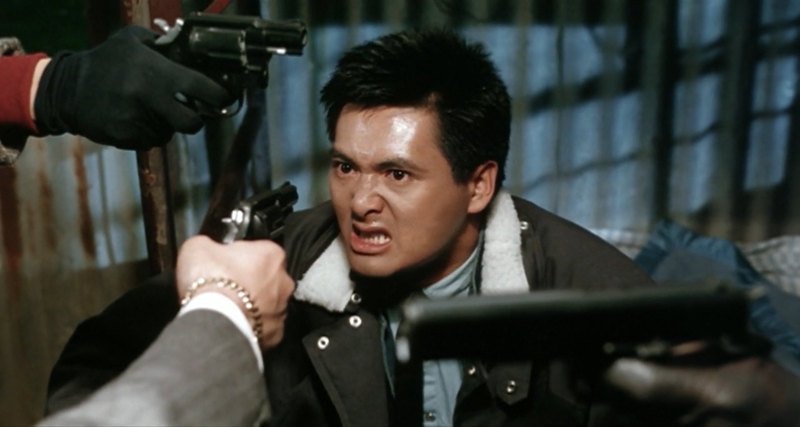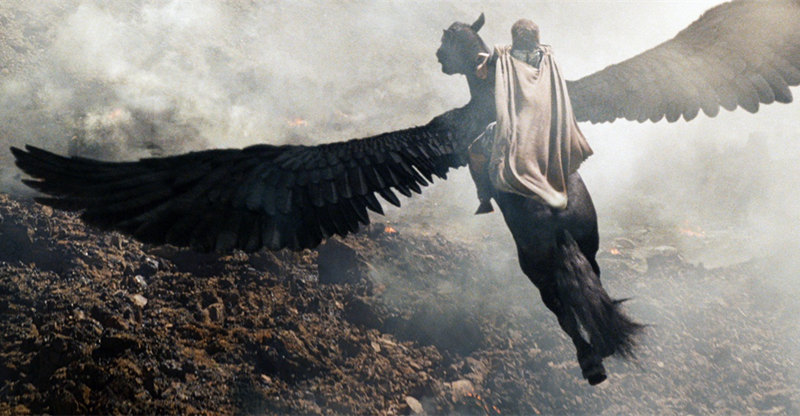New Jersey has gotten a lot of TV exposure over the last decade, and I wouldn’t exactly call it positive. Whether you’ve watched the mob action of “The Sopranos,” the ready-to-rumble “Real Housewives of New Jersey,” or the try-anything, attitude-laden “Jersey Shore” bunch, you walk away with the impression that New Jersey is the Don’t F**k with Me State.
“Boardwalk Empire” does nothing to change that. In fact, after watching the ruthless pursuit of wealth, power, tangible booze and women in this HBO Prohibition-era drama, you half expect one of the networks to go back even farther in time and create run a series telling how the Jersey pilgrims leaned on the indigenous people to pay protection . . . or else.
Based on a non-fiction account by author Nelson Johnson, “Boardwalk Empire” stars Steve Buscemi as Nucky Thompson, the treasurer of Atlantic City who built a powerful empire as a bootlegger and spends as much of his time in whorehouses as the rest of the politicians and police in New Jersey. Like Nucky Johnson, the real figure he’s based upon, Buscemi’s character is involved in prostitution and gambling while at the same time kissing babies, hobnobbing with socialites, and keeping up the appearance of a people’s politician. But he was also using bribery and booze to build an empire capable of putting a man in the U.S. Senate.
Buscemi was honored by his peers with back-to-back SAG Awards for best actor, but I have to say that in the early going I didn’t see it. This first season Buscemi seems to grow into the role, looking more comfortable in later episodes. Or maybe it’s the character itself that I’m reacting to. In the first few episodes, Nucky Thompson struck me as a pretty bland fellow compared to the fiery Tony Soporano, so be warned: what we see in Buscemi isn’t the same bad-boy edge as we got from big Tony. He may be just as ruthless in his ordering of hits and in the way he deals with competition from rival mobs looking to get in on the Boardwalk action, but he’s more calculating and measured in his responses. He’ll go off on occasion, whereas Tony Soprano went off every time you looked at him cockeyed. Subtle and restrained acting might be more difficult, but it doesn’t necessarily make for better TV.
So the first season can be a little slow to get into, and not just because of Buscemi’s milder character. The other characters aren’t as colorful and distinctive as the cast of “The Sopranos” . . . until you get to know them. And the plot, with mobs from Chicago and New York trying to muscle in, can get murky until the smoke clears. After that, “Boardwalk Empire” picks up speed, and the acting was good enough to earn an Emmy nomination for Outstanding Drama Series and win Outstanding Performance by an Ensemble in a Drama Series for its first two seasons at the SAG Awards. I was a fan by the fourth episode—about the time my wife decided she couldn’t watch any more. It was just too brutal and graphically violent for her. And the violence comes from all sides, even from a federal prohibition agent (Michael Shannon) who breaks the law as much as he tries to enforce it, and who tortures a prisoner by shoving his hand into an open wound in his stomach to try to make him talk.
On the gangland side, Nucky’s main muscle (Michael Pitt as Jimmy Darmody) also has a violent streak, and so does a young Al Capone (Stephen Graham) who, like Jimmy, is working his way up the mob ladder. Other characters from history make an appearance, including Arnold Rothstein (Michael Stuhlbarg) and Lucky Luciano (Vincent Piazza).
Don’t look for a lot of strong female characters, though. This bunch of thugs runs with a group of women who illustrate why women shouldn’t get the vote, who seem comfortable with the notion that women exist for the pleasure of men and that’s how to get ahead. But there are a few thinking women, and Kelly Macdonald is outstanding as the unflappable Mrs. Schroeder, while Gretchen Mol does a nice job as Jimmy’s mother.
The real star of “Boardwalk Empire” might be the period itself, with HBO sparing no expense to recreate the look, feel, and sound of Atlantic City’s famed Boardwalk. It smacks of authenticity, conveying as much period atmosphere as AMC’s “Mad Men,” with period songs scattered liberally throughout.
Twelve first-season episodes are contained on five single-sided discs housed in a card-board-and-plastic fold-out that tucks into a heavy board slipcase:
- “Boardwalk Empire.” Corrupt country treasurer Nucky Thompson carves out a niche in Atlantic City as the country heads into Prohibition.
- “The Ivory Tower.” Nucky closes ranks after arousing the suspicion of straight-arrow Prohibition Agent Nelson Van Alden.
- “Broadway Limited.” Jimmy’s future is clouded by an unlikely witness to the woods massacre; Margaret takes on a new job; Chalky’s team pays a big price for his success.
- “Anastasia.” Jimmy forges new relationships in Chicago; Nucky fetes a U.S. Senator; Chalky fingers a lynching suspect; Margaret and Lucy clash.
- “Nights in Ballygran.” Nucky’s attempts to usher in a joyous St. Patrick’s Day are undermined by Eli, Margaret, and Van Alden.
- “Family Limitation.” Nucky investigates a Boardwalk theft; Jimmy scores points with Johnny Torrio in Chicago; Margaret stands up to Lucy.
- “Home.” Nucky purges some bad childhood memories; Jimmy forges a new alliance with a fellow veteran; Luciano and a friend cut a deal with the “D’Alessia brothers.
- “Hold Me in Paradise.” While visiting Chicago during the Republican National Convention, Nucky gets some alarming news from Atlantic City.
- “Belle Femme.” Nucky braces for war with a rival faction; Jimmy stands by his alibi; Margaret helps out Madame Jeunet.
- “The Emerald City.” Nucky asks Margaret to toe the party line; Angela witnesses Jimmy’s violent side; Capone faces a crossroads; Van Alden grapples with his emotions.
- “Paris Green.” Nucky shakes up the status quo; Jimmy deals with some tricky family issues; Van Alden addresses Agent Sebso’s “temptations.”
- “A Return to Normalcy.” Nucky and Atlantic City braces for change on Election Day; Torrio brokers a deal between two nemeses, with far-reaching consequences; Jimmy ponders his future, as do Margaret, Agent Van Alden, and Eli.
Total run-time is 732 minutes.
Video:
HBO prides itself on strong production values, and “Boardwalk Empire” is no exception. The AVC/MPEG-4 transfer looks gorgeous, with no visible artifacts and an incredible amount of detail. The palette looks rich even in dark shots or in scenes where golds and browns predominate. As for the blood? It’s pretty vivid. This is a solid video transfer from clearly impeccable source materials, presented in 1.78:1 aspect ratio.
Audio:
The audio is a masterful English DTS-HD MA 5.1 that really envelopes you with sound that travels logically across the sound field. Whether it’s the sound of footsteps or an explosion, there’s a nascent clarity to it all that makes every scene sound fresh and crisp. And it’s not just ambient sounds. There’s a lot of that, but mostly it’s the distribution of sound across the speakers and the way the sound (like waves) moves across the viewing area. It’s an absolutely flawless soundtrack, and it doesn’t require you to keep toggling up and down on the volume control.
Additional audio options are in French and Spanish DTS 5.1 Digital Surround and a 2.0 DTS Digital Surround in Castilian. Subtitle options are English SDH, French, Latin Spanish, Castilian Spanish, Brazilian Portuguese, Danish, Finnish, Norwegian, and Swedish.
Extras:
You can choose to watch “Broadway Empire” in Enhanced Viewing Mode, which is basically a PIP feature with a menu bar that frankly confused and distracted me. The features, though, are really nice, and for those who wonder how close to fact the episodes and settings are, we get a complement of historians and experts who “fact check,” pointing out accuracies and inaccuracies. You can also click on a Character Dossier to get a PIP for each of the historical figures. So if you want to know who allegedly fixed the 1919 World Series, for example, it’s right there.
Additional bonus features are contained on discs four and five, with the best place to start being “Atlantic City: The Original Sin City,” a 30-minute overview that does a nice job of situating the show historically. In fact, if you don’t know anything about the city and the time period, I’d recommend watching this bonus feature before you watch the series.
Other bonus features: “Speakeasy Tour,” a roughly half-hour tour of the speakeasies in Chicago and New York; “Making ‘Boardwalk Empire,” a 20-minute backgrounder that’s for people too impatient to do the PIP Enhanced Viewing Mode, and “Creating the Boardwalk,” a five-minute extra on the production design.
Finally, for those who like to watch the episodes all over again with commentaries, you can do that with six episodes: “Boardwalk Empire,” “Anastasia,” “Hold Me in Paradise,” “Paris Green,” and “Return to Normalcy,” featuring Buscemi and actor Kenneth Williams on one commentary, series creator Terence Winter (who wrote for “The Sopranos”) on another track, and the rest including writers Tim Van Patten and Howard Korder, directors Allen Coulter and Brian Kirk, and actor Michael Shannon.
Also Read:
BOARDWALK EMPIRE: SEASON 2 – Blu-ray review
Bottom line:
Martin Scorsese, who serves as executive producer, directed the pilot episode, establishing a look and tone that successive directors would continue. The performances are stellar, but as much as anything, the atmosphere Scorsese established goes a long way toward making “Boardwalk Empire” the success that it is. It may take a few episodes to hook you, but once you’re on the line, you don’t want to let go.


